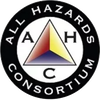Multi-State Secure information sharing
Many different public and private organizations have interests and investments in the area of information and access management systems.
Two types of access is defined:
1) Logical Access = access to computers and digital information
2) Physical Access = access to buildings and restricted areas
A NATIONAL WORKING GROUP
As disasters don’t respect state geographic boundaries, the need to have “interoperability” among public and private credentials across a multi-state area is critical to more effective and coordinated response and recovery efforts. The need for this interoperability impacts the collective efforts of professionals in law enforcement, fire/EMS, medical, and business operations/continuity.
Many state/local jurisdictions across the US have been working with FEMA, the US Departments of Homeland Security’s Science and Technology Directorate, DHS Office of Infrastructure Protection, the SLTTGCC (State, Local, Tribal and Territorial Government Coordination Council), and the private sector have been working together in a national working group called the PIV-I/FRAC TTWG. The abbreviations are listed below:
PIV-I - Personal Identity Verification - Interoperable (a standard used by federal agencies, states/locals, and private sector to
FRAC = First Responder Access Credential (used by public sector first responders for logical and physical access)
TTWG = Technology Transfer Working Group
The mission of this group is to promote the “interoperability” of credentials and standards needed by both the public and private sectors to address the full "spectrum" of credentialing systems and user requirements from both the local, state, regional and the national perspective.
More information: PIV-I FRAC Technology Transition Working Group
A SECURE INFORMATION SHARING PILOT PROJECT
The private sector members of the AHC's Multi-State Fleet Response Working Group are working with state/local government agencies on the East Coast to expedite the flow of sensitive operational information across multiple states during disasters in order to restore power and supply chain disruptions. The regional Secure Information Sharing Pilot is leveraging a proven, stable process to test secure operational information sharing within the electric, food and fuel sectors.
Learn More...
Two types of access is defined:
1) Logical Access = access to computers and digital information
2) Physical Access = access to buildings and restricted areas
A NATIONAL WORKING GROUP
As disasters don’t respect state geographic boundaries, the need to have “interoperability” among public and private credentials across a multi-state area is critical to more effective and coordinated response and recovery efforts. The need for this interoperability impacts the collective efforts of professionals in law enforcement, fire/EMS, medical, and business operations/continuity.
Many state/local jurisdictions across the US have been working with FEMA, the US Departments of Homeland Security’s Science and Technology Directorate, DHS Office of Infrastructure Protection, the SLTTGCC (State, Local, Tribal and Territorial Government Coordination Council), and the private sector have been working together in a national working group called the PIV-I/FRAC TTWG. The abbreviations are listed below:
PIV-I - Personal Identity Verification - Interoperable (a standard used by federal agencies, states/locals, and private sector to
FRAC = First Responder Access Credential (used by public sector first responders for logical and physical access)
TTWG = Technology Transfer Working Group
The mission of this group is to promote the “interoperability” of credentials and standards needed by both the public and private sectors to address the full "spectrum" of credentialing systems and user requirements from both the local, state, regional and the national perspective.
More information: PIV-I FRAC Technology Transition Working Group
A SECURE INFORMATION SHARING PILOT PROJECT
The private sector members of the AHC's Multi-State Fleet Response Working Group are working with state/local government agencies on the East Coast to expedite the flow of sensitive operational information across multiple states during disasters in order to restore power and supply chain disruptions. The regional Secure Information Sharing Pilot is leveraging a proven, stable process to test secure operational information sharing within the electric, food and fuel sectors.
Learn More...
